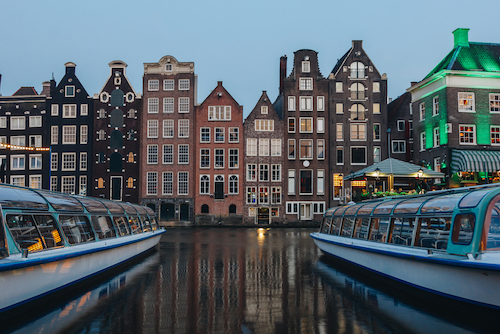The Netherlands has a mandatory health insurance scheme, which is run by private insurers but regulated by the government. Anyone staying in the Netherlands for the long-term, and anyone who is employed by a Dutch company and working in the Netherlands, will need to take out health insurance.
There are three types of health insurance available: Budgetpolis, Naturapolis, and Restitutiepolis; and there is also help available for those who are unable to pay for their own insurance. This is known as zorgtoeslag and can cover up to 100% of health expenditure, based on income levels. To find out more about the types of insurance available and how to sign up, take a look at our article How To Register With The Dutch Healthcare System.Once you have settled into your new home and registered with a local doctor, what happens when you need treatment? Prices will vary depending on the region you live in, as well as which insurance premiums you have chosen, but we provide a brief price guide below, which should give you an idea of what to expect.
Common Operations And Procedures In The Netherlands
The average spend on healthcare in the Netherlands is €3,954, which is much higher than the EU’s overall average of €2,797. In recent years some have criticised the rising level of out-of-pocket spend required by expats and locals alike. However, this shows no sign of abating and it is important to bear in mind the rising costs of healthcare if you are planning to move to the Netherlands.
Those with a Restitutiepolis policy will not be charged as much per procedure as patients with Budgetpolis or Naturapolis policies, however the annual premiums for Restitutie are much higher, so before you take out health insurance it is wise to weigh up how much time you expect to have to spend in hospital versus the cost of the premiums.
It is difficult to plan for emergency procedures, which tend to be the most expensive health-related costs. An overnight stay in hospital costs around €150 just for the price of the bed; and of course, any medications and consultations with specialists will add to that figure. Visiting an emergency room can cost up to €300, and an emergency visit to a doctor’s surgery (booking an appointment outside of their normal office hours) will set you back around €100.
Childbirth
If you know you are going to have a baby in the Netherlands, you will at least be able to do some planning upfront. Some parents prefer a home birth — this is an increasingly popular option, with around 30% of people choosing to give birth at home — and about another 10% use specialist birthing centres, rather than general hospital maternity wards.

Prenatal and antenatal care are covered by all health insurance options, even if you were already pregnant when you moved to the Netherlands, although you may need to pay upfront and then be reimbursed if you need any pregnancy-related care before you have received your insurance number.
The cost of a hospital birth is another factor causing people to choose home birthing instead. If a hospital stay is medically required, for example if it is recommended by your doctor or an emergency situation arises making it necessary to go to hospital, then this should be fully covered by your health insurance. However, if you choose to have a hospital birth despite not being told that there is a specific need to do so, then you will probably need to pay for at least part of the stay yourself. Again, this will depend on the level of cover you have: those with a Restitutiepolis will be billed for less than those on a Budgetpolis, although their overall premiums will be higher.
So how much does a hospital birth cost? The most recent comprehensive study of the costs of specific procedures was the HealthBASKET project, commissioned by the EU in 2006. At the time of the report, a hospital birth with no complications would cost around €700. The majority of this is spent on the healthcare team, for pre- and post-delivery as well as during the birth itself.
However, the €700 figure does not reflect any medication costs except the most basic level of painkillers. If anything goes wrong during the delivery and you or your baby require extra care, you will not be billed for this.
Biopsies And Tests
Cancer is the main cause of death in the Netherlands, and it is important to catch it as early as possible so that the appropriate treatment can be sought. Scans and biopsies are the most prevalent methods of cancer detection, and often it is necessary to do a few tests to understand where the problem lies.
A study in European Radiology estimated the costs of diagnosing the most common forms of cancer to be around €1500; however, this will generally be picked up by your insurer.

Cancer treatments will also be covered by insurance — the Dutch health system prioritises treatments for serious and life-threatening conditions, so it is rare for an individual to be asked to pay any of the costs for cancer or similar medical problems.
There has been some controversy regarding the levels of treatment at hospitals around the country, with consultants in some hospitals only conducting a certain number of procedures per year. This is against the government’s healthcare guidelines, but there are still reports of it happening, so if you have had cancer, or if you have a long-term condition that increases your susceptibility to cancer, it might be worth doing some research on the area you plan to live in, to find out whether the local hospitals there have a good reputation.
Chronic And Long-Term Conditions
All chronic and long-term conditions, including mental health conditions, are fully covered by health insurance in the Netherlands, even if they are pre-existing conditions before you arrive. Health insurers are required by law to accept everyone who applies for a basic level of cover, regardless of age, health conditions or any other external factors. They are not required to provide the most comprehensive level of cover, though, so if you are worried about complications arising from your condition, be sure to shop around before you choose your insurer.
Would you like to share your experience of life abroad with other readers? Answer the questions here to be featured in an interview!

